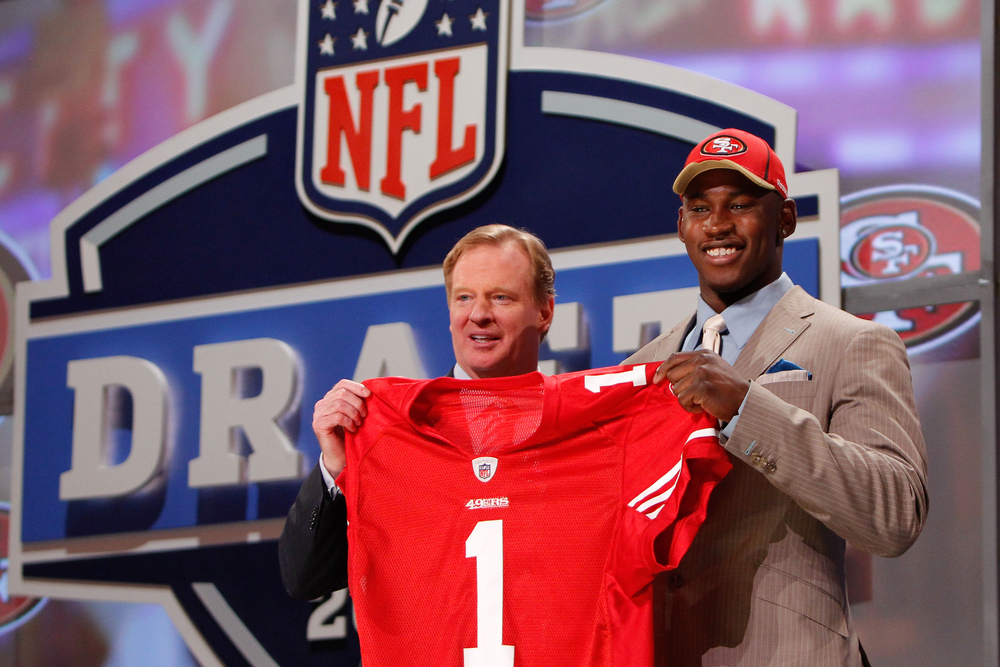We are so addicted to the entertainment drug that is the NFL that we can’t turn away, even from the unwatchable draft coverage. But maybe in between analyzing your team’s picks, you can turn off the cringe worthy moments and spend some time focusing on your IRA.
From sophisticated traders to financial neophytes to every type of investor in between, 46 million American households owned at least one type of IRA accounting for over $6.5 trillion in assets at the end of 2013. However, across all demographics people tend to ignore their IRAs and very few have a systematic method for growing their nest egg. Yet what could be more important than enabling a comfortable retirement? Passive investment management could be crippling your future. Ironically, traders who actively trade with a cash account often fail to use the same management style for their retirement accounts. While many people will consult a financial professional, so few are aware that even novice traders can actively manage a portion of their IRA. And no, that doesn’t involve spending all day in front of your computer-you can spend as little as an hour a week to take control.
Here are just a two of the numerous reasons why you should be trading in your IRA account (look for more to come).
- Retirement Confidence is Incredibly Low
The Employment Benefit Research Institute (EBRI) reports that only 18% of American workers are “very confident” that they have enough money for retirement. While this figure is alarming, it is substantially better than in previous years. Between 2009 and 2013, the number of workers who felt “very confident” that they will have enough saved for retirement was at record lows – only 13%. The EBRI gets more granular with their data and breaks the confidence numbers down to households who do participate in a retirement savings plan (IRAs or 401ks) and those who do not participate. When you look at the number of “very confident” households that DO have IRAs or other retirement savings plans, the number only improves to 24%. Think about that-over 75% of workers WITH a retirement plan DO NOT feel “very confident” about their future financial security. The current prevailing practice of a passively managed IRA clearly isn’t working.
- Trading Profits Grow Tax Free
There are two primary types of individual retirement accounts; traditional IRAs and Roth IRAs. The primary differences between these two types of accounts involves how your funds are taxed going into the account and how they are taxed coming out of the account. You typically fund your traditional IRA with pre-tax dollars, while you can only fund your Roth IRA with after-tax dollars. http://www.ici.org/pdf/10_ira_facts.pdf The Investment Company Institute http://www.ebri.org/surveys/rcs/ Employee Benefits Research Institute Qualified withdrawals from a traditional IRA are always taxed as ordinary income, while qualified withdrawals from your Roth IRA are free from federal income taxes. Funds inside both types of IRAs work the same. Any activity that occurs inside the account, including a stock, options, futures or Forex trade, does not result in a currently taxable event. In other words, your investments in your IRA grow tax deferred until they are withdrawn. Think about trading stocks in a traditional brokerage account – there are a number of costs associated with this activity. You will typically pay a brokerage commission on each buy and sell order. If you sell your stock for more than you paid for it you will typically have a taxable capital gain, which may be short term or long term depending on how long you owned your stock prior to the sale. Yes, you will still have to pay brokerage fees and commissions in your IRA, but you will not pay taxes on any gain that results from a trade. On the flip side, you will not be able to reduce your taxable income by claiming any loss that results from a trade. All investment activity that occurs within your IRA is treated the same, regardless of the form it takes. Dividends, interest and capital gains are all allowed to grow without creating a current tax obligation. In addition, your trading gains and losses in an IRA are not reportable. This eliminates the hassles of maintaining records of buys and sells and having to make cumbersome calculations come tax commission-free ETFs.




